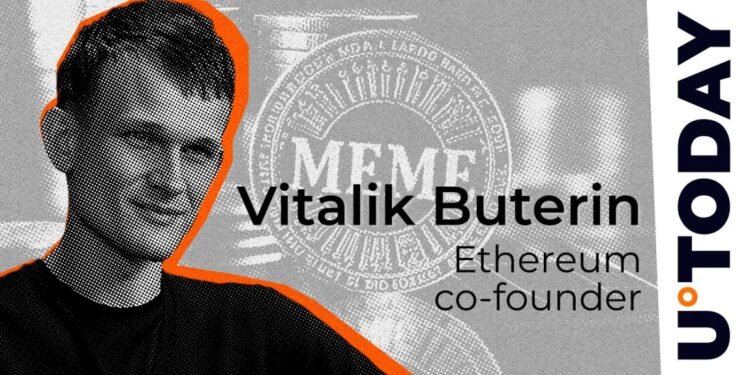Venture Into Meme Tokens by Ethereum Founder Sparks Generous Speculation
Recent news reveals that Vitalik Buterin, the co-creator of Ethereum, has offloaded a substantial amount of meme tokens, acquiring 257.1 ETH, roughly valued at $636,000. The tokens involved in this sale, such as MSTR, POPCAT, ITO, ETH6900, SATO, and Milo, were traded in large volumes, igniting fresh discussions on potential charitable contributions resulting from Buterin’s cryptocurrency transactions.
Insights from Experts and Market Landscape
Insights from Lookonchain reveal that Buterin’s wallet traded 330,000 MSTR for 114.1 ETH ($282,000), 14 million POPCAT for 74.99 ETH ($186,000), alongside significant quantities of ITO, ETH6900, SATO, and Milo. Wu Blockchain has also commented on the situation, suggesting that consistent with his past behavior, Buterin might contemplate donating the earnings from these sales. Recent weeks saw him liquidating eight different meme tokens, totaling 651.4 ETH or approximately $1.61 million, involving comparable tokens, displaying a trend of trading activities followed by charitable gestures.
In another instance, Buterin garnered attention for endorsing a meme token associated with the trending baby pygmy hippo, Moo Deng, by selling off billions of tokens for a charitable cause directed at funding “anti-airborne-disease technology.” These actions highlight Buterin’s distinctive association with unsolicited digital assets, as his wallet frequently receives these tokens, likely as tokens of appreciation from developers or as a promotional tactic.
Potential Impacts and Examination
Buterin’s actions extend beyond mere transactions, reflecting a rising pattern in the cryptocurrency sector where key figures are leveraging their influence for altruistic purposes. His prior involvement with Shiba Inu sets a precedent; in 2021, he was gifted half of its total supply, resulting in the elimination of 410 trillion tokens and a dedication to charitable causes with the remaining assets. Buterin’s stance against unrequested token offerings, while recognizing the positive impact they can have, showcases a preference for more direct avenues of philanthropy within the crypto domain.
As the cryptocurrency market progresses, Buterin’s deeds spark both interest and scrutiny, especially concerning how these sales and donations impact market dynamics and the perception surrounding meme tokens.
Wrap Up
In conclusion, Vitalik Buterin’s recent divestment of meme tokens not only highlights his significant role in the cryptocurrency realm but also accentuates the potential philanthropic outcomes tied to these transactions. This dual narrative of market maneuvers and charitable acts directs attention to the broader implications of crypto trading and its potential for societal welfare. Participants in the cryptocurrency community might draw inspiration from Buterin’s actions, possibly fostering a culture of responsible trading aligned with benevolent causes.








